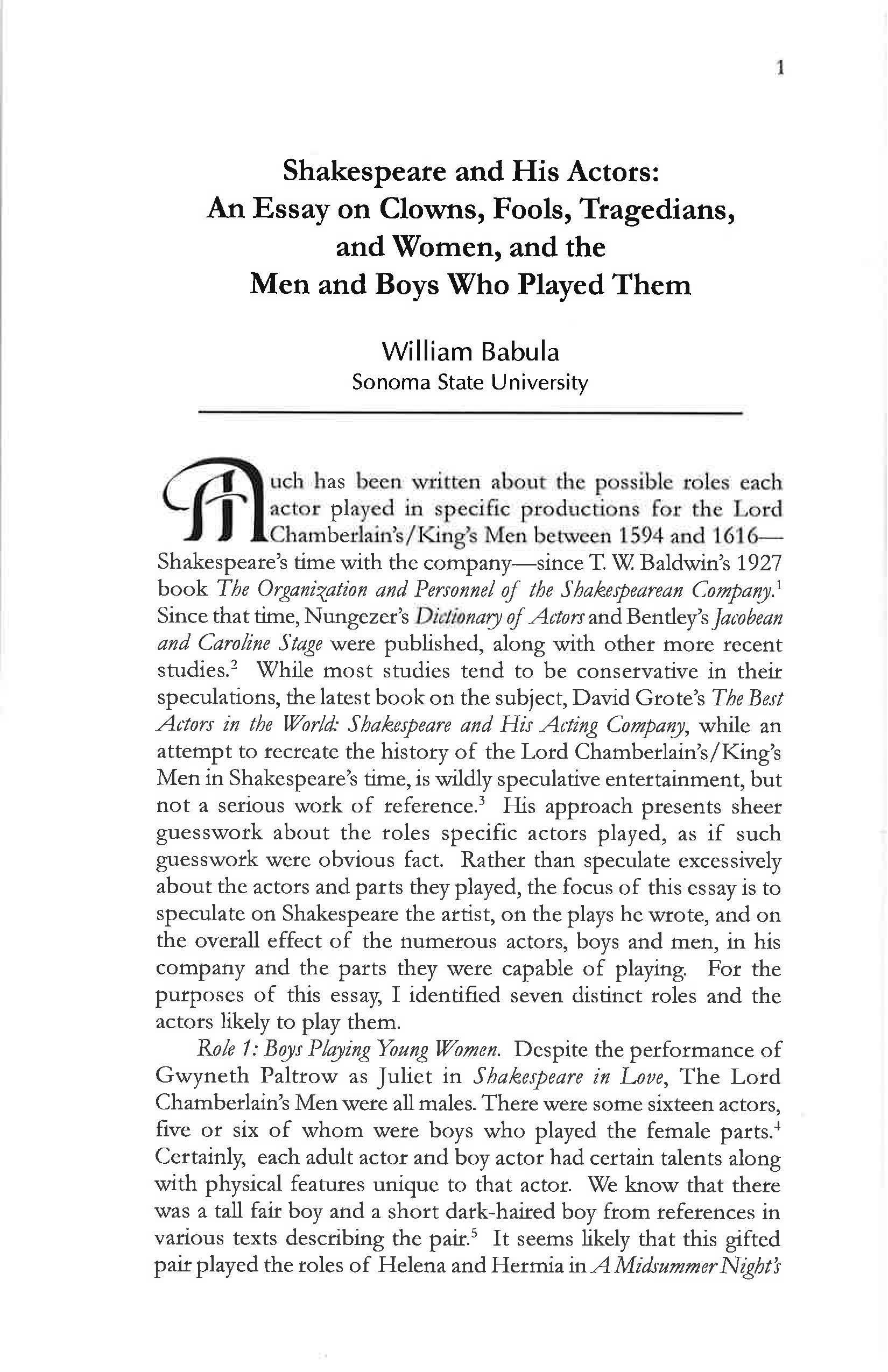Shakespeare and His Actors: An Essay on Clowns, Fools, Tragedians, and Women, and the Men and Boys Who Played Them
Main Article Content
Abstract
Much has been written about the possible roles each actor played in specific productions for the Lord Chamberlain’s/King’s Men between 1594 and 1616—Shakespeare’s time with the company—since T.W. Baldwin’s 1927 book The Organization and Personnel of the Shakespearean Company.1 Since that time, Nungezer’s Dictionary of Actors and Bently’s Jacobean and Caroline Stage were published, along with other more recent studies.2 While most studies tend to be conservative in their speculations, the latest book on the subject, David Grote’s The Best Actors in the World: Shakespeare and His Acting Company, while an attempt to recreate the history of the Lord Chamberlain’s/King’s Men in Shakespeare’s time, is wildly speculative entertainment, but not a serious work of reference.3 His approach presents sheer guesswork about the roles specific actors played, as if such guesswork were obvious fact. Rather than speculate excessively about the actors and parts they played, the focus of this essay is to speculate on Shakespeare the artist, on the plays he wrote, and on the overall effect of the numerous actors, boys and men, in his company and parts they were capable of playing. For the purposes of this essay, I identified seven distinct roles and the actors likely to play them.
